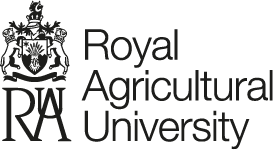Contribution of pollinators to delivering fruit quality in commercial sweet cherry orchards
Mateos-Fierro, Zeus, Garratt, M.P.D., Fountain, M.T., Ashbrook, Kate and Westbury, Duncan B (2025) Contribution of pollinators to delivering fruit quality in commercial sweet cherry orchards. JSFA Reports.
|
Text
Mateos‐Fierro et al_2025_Contribution of pollinators to delivering fruit quality in commercial sweet cherry.pdf - Published Version Available under License Creative Commons Attribution. Download (1MB) |
Abstract
Background: Pollinators provide an essential ecosystem service to many crops, includingsweet cherry (Prunus avium), which can be quantified in terms of fruit number and/orquality. Most studies in sweet cherry have explored the extent to which fruit set relieson pollinators but have neglected pollinators’ contribution to fruit quality. We investi-gated the impact of pollinators on fruit set (2018–2019) and fruit quality (2017–2019).In 10 commercial sweet cherry orchards under polytunnels, we conducted insect-exclusion experiments comparing insect-excluded blossoms (mesh-bagged blossoms) toblossoms exposed to floral visitors (open blossoms). We then investigated relationshipsbetween fruit set and fruit quality.Results: Pollinators were key to underpinning commercial fruit set (15.4% fruit set fromopen blossoms compared to 1.1% with bagged blossoms), equivalent to a contribution of92.8%. Pollinators were also essential to achieving higher cherry fruit quality. With openblossoms, fresh mass, width, dry matter, and flesh/pit ratio of cherries increased by19.8%, 7.9%, 19.8%, and 10.5%, respectively, compared to cherries from bagged blos-soms. In contrast, firmness was similar between both pollination treatments. We did notfind a significant relationship between fruit set and quality, suggesting trees did not carryan excessive fruit burden.Conclusion: Our results highlight the importance of pollinators, not only for underpin-ning commercial yields in terms of fruit set, but also for higher fruit quality. We recom-mend growers adopt effective pollinator management practices to help underpincommercially viable yields consisting of fruit with a higher marketable potential.
| Item Type: | Article |
|---|---|
| Keywords: | bees, dry matter, fruit mass and size, insect-exclusion experiment, pollination services, polytunnels |
| Divisions: | Land and Property Management |
| Depositing User: | Professor Duncan Westbury |
| Date Deposited: | 02 Jun 2025 13:55 |
| Last Modified: | 21 Jul 2025 14:08 |
| URI: | https://rau.repository.guildhe.ac.uk/id/eprint/16957 |
Actions (login required)
 |
Edit Item |

